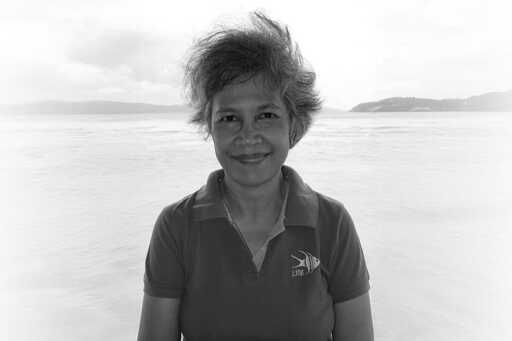Founder’s Briefs: An occasional series where Mongabay founder Rhett Ayers Butler shares analysis, perspectives and story summaries. In the shallows off northern Bali, where the reefs flicker with life and the sea carries the rhythm of work and prayer, a quiet revolution took root. Women who once had few choices began tending tanks of clownfish and Banggai cardinalfish, learning the art of aquaculture. Fishers in nearby villages abandoned cyanide and explosives, watching their catches recover. Coral fragments, anchored to man-made structures, began to grow again. The transformation seemed to come from the sea itself, but it began with a woman who believed that to save reefs one must first listen to the people who depend on them. She had started, as many conservationists do, beneath the waves. Trained in marine biology, she dived across the archipelago, recording the decline of once-vivid ecosystems. But over time, she realized that the reefs would not heal through data alone. “Managing those resources means managing people,” she once said. So she turned from counting fish to understanding fishers, from studying ecosystems to shaping livelihoods. Gayatri Reksodihardjo-Lilley was a reformer who worked without fanfare. In 2008 she co-founded the LINI Foundation, a small nonprofit that would become a lifeline for Indonesia’s coastal communities. Her projects reached from Bali to Sulawesi and the Banda Islands, linking conservation with dignity. She trained teachers to teach the sea, coaxed policymakers toward collaborative management, and built a center where women could “learn and earn.” When local fishers asked for…This article was originally published on Mongabay
From Conservation news via this RSS feed


